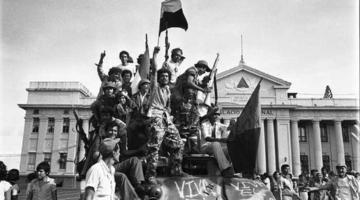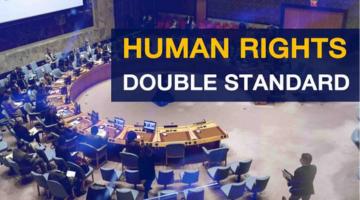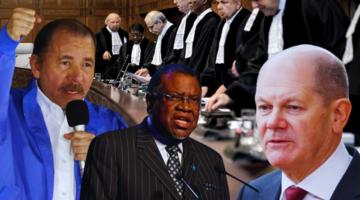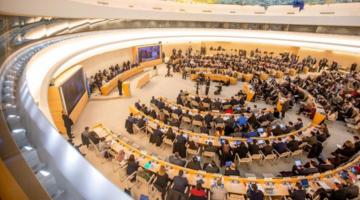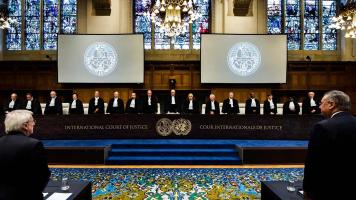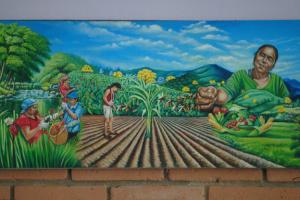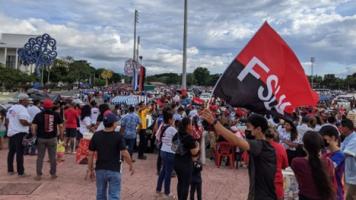Related Stories
Becca Renk
Celebrating 46 years of revolution, Nicaragua demonstrates that it is possible to respect its heroes and also venerate its youth.
Jill Clark-Gollub
Ortega and Bukele are polar opposites: one invests in dignity and democracy, the other in mass incarceration and imperial alliances.
John Perry
The international human rights apparatus comprises a web of organizations, task forces, committees, and the United Nations itself.
Margaret Kimberley, BAR Executive Editor and Senior Columnist
The Republic of Nicaragua recently celebrated 45 years of its revolutionary government. The U.S.
Ramzy Baroud
The Palestinian fight against colonialism is recognized by nations in the global south as one that mirrors their own.
Alfred de Zayas
, John Perry
The United States uses its power within the United Nations and the concept of human rights to cover its plans for regime change.
Ben Norton
37 years after a 1986 International Court of Justice ruling, the United States still refuses to pay Nicaragua the reparations it legally owes.
Margaret Kimberley, BAR Executive Editor and Senior Columnist
The question of how Black people fare in a particular country can be a legitimate issue or a ruse used in the furtherance of U.S.
Alliance for Global Justice
The United States has targeted Nicaragua ever since the days of Ronald Reagan.
Margaret Kimberley, BAR Executive Editor and Senior Columnist
Genuine peoples holidays are hard to come by in the U.S. But in Nicaragua the ongoing revolutionary process is widely celebrated.
More Stories
- Black Agenda Radio with Margaret KimberleyIn this week’s segment, we cover state repression and regime change efforts. While the corporate media parroted state narratives about a popular uprising in Iran, all evidence indicates that recent…
- Black Agenda Radio with Margaret KimberleyMnar Adley is the founder and director of MintPress News, an independent media outlet. She joins us from Minneapolis, Minnesota, where Donald Trump's ICE enforcement is used as domestic police…
- Black Agenda Radio with Margaret KimberleyNina Farnia is an assistant professor at Albany Law School in New York. She is a legal historian, focusing on the role of modern imperialism in U.S. law and politics, and a member of the Anti-…
- Tobi RajiU.S. funding for a study on the timing of hepatitis B vaccine doses in infants in Guinea-Bissau violates accepted standards of medical ethics.
- Margaret Kimberley, BAR Executive Editor and Senior ColumnistDonald Trump and other U.S. presidents are gangsters who will sometimes steal from their own crew. The Greenland heist is but the latest example, as the Denmark colonizers cry that they were robbed…

